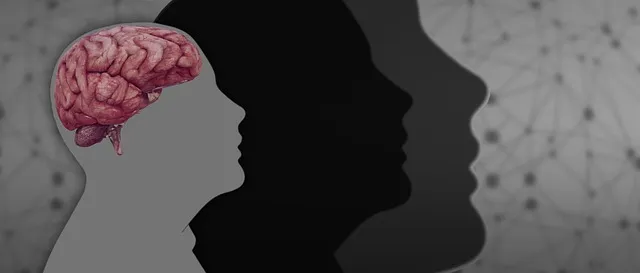Emotional Intelligence (EI) is a cornerstone of Longmont Kaiser Permanente's (LKP) mental health services, fostering positive workplace culture and patient care. LKP's holistic approach includes self-awareness exercises, coaching programs, and tracking tools to enhance EI skills in both personal and professional settings. Their evidence-based practices promote emotional literacy, improve interpersonal relationships, and contribute to the overall well-being of clients and staff, making the LKP mental health department a leading promoter of EI within the community.
Emotional intelligence (EI) is a powerful tool for personal growth and effective communication, playing a pivotal role in our professional and personal lives. This article explores EI development, focusing on the unique approach taken by the Longmont Kaiser Permanente Mental Health Department. We’ll uncover practical strategies to enhance EI in daily life, along with methods for measuring progress. By understanding these concepts, readers can unlock their emotional potential and foster healthier relationships. Discover how this structured framework, backed by expert guidance, can significantly impact mental well-being.
- Understanding Emotional Intelligence: Definition and Significance
- Longmont Kaiser Permanente Mental Health Department's Role in EI Development
- Strategies for Enhancing Emotional Intelligence in Daily Life
- Measuring and Tracking Progress: Tools and Techniques for Continuous Growth
Understanding Emotional Intelligence: Definition and Significance

Emotional intelligence (EI) refers to the ability to recognize, understand, and manage one’s own emotions, as well as recognize, interpret, and respond appropriately to the emotions of others. This concept involves a range of skills, including self-awareness, empathy, and effective communication. At Longmont Kaiser Permanente mental health department, understanding EI is crucial, serving as a foundational component in their crisis intervention guidance and overall patient care approach.
EI plays a significant role in both personal and professional spheres. In the workplace, individuals with high EI tend to have better interpersonal relationships, improved conflict resolution skills, and enhanced leadership abilities. They can create a more positive and productive environment, fostering better collaboration among team members. Moreover, integrating communication strategies that promote active listening and empathetic understanding can significantly contribute to stress management workshops within organizations, ultimately leading to a healthier and happier workforce.
Longmont Kaiser Permanente Mental Health Department's Role in EI Development

The Longmont Kaiser Permanente Mental Health Department plays a pivotal role in fostering emotional intelligence (EI) development among its clients and staff. This dedicated department offers a comprehensive suite of services designed to enhance mental wellness, emphasizing self-awareness, empathy, and effective communication—core components of EI. Through specialized programs, they equip individuals with valuable conflict resolution techniques tailored to diverse cultural sensitivities in mental healthcare practice.
By integrating evidence-based practices, the Mental Health Department creates supportive environments that encourage exploration and growth. Their expertise lies in tailoring interventions to meet the unique needs of each individual and community, fostering a culture of emotional literacy and resilience. This holistic approach not only benefits patients but also empowers staff, ensuring they can provide culturally sensitive care and navigate complex interpersonal dynamics with skill and compassion.
Strategies for Enhancing Emotional Intelligence in Daily Life

Building emotional intelligence is an ongoing practice that can greatly enhance your daily life and relationships. The Longmont Kaiser Permanente mental health department offers valuable resources for those seeking to improve their emotional intelligence. One effective strategy is to engage in regular Self-Awareness Exercises. These could be as simple as daily journaling, where you reflect on your emotions, thoughts, and behaviors. Mindfulness practices like meditation or deep breathing can also help individuals become more attuned to their feelings and triggers.
Additionally, considering Mental Wellness Coaching Programs Development can provide structured support. Such programs often include guidance on effective communication, empathy development, and managing stress. Learning these skills allows individuals to navigate social interactions with greater sensitivity and respond to challenging situations in a more balanced manner. Incorporating these strategies into your routine can foster better emotional regulation, leading to improved mental health awareness and overall well-being.
Measuring and Tracking Progress: Tools and Techniques for Continuous Growth

Measuring progress is an integral part of emotional intelligence (EI) development, offering individuals and organizations valuable insights into their growth journey. The Longmont Kaiser Permanente mental health department offers a range of tools to help navigate this path. One effective method involves self-assessment questionnaires designed to evaluate EI skills in various domains, such as self-awareness, empathy, and social interaction. These assessments provide a baseline and allow for regular tracking of progress over time. By identifying strengths and areas that need improvement, individuals can focus their development efforts accordingly.
Additionally, keeping a journal or using mental wellness podcast series production as a reflective practice can be powerful. Documenting experiences, emotions, and the impact of EI strategies on daily interactions fosters self-reflection and awareness. Regularly listening to these recorded conversations can provide new perspectives, helping individuals recognize patterns in their emotional responses. This continuous monitoring facilitates personal growth and ensures that mental illness stigma reduction efforts remain effective, ultimately contributing to enhanced inner strength development.
Emotional intelligence is a powerful tool for personal and professional growth, as demonstrated by the extensive work of the Longmont Kaiser Permanente Mental Health Department. By understanding and developing emotional intelligence through practical strategies, individuals can enhance their relationships, make better decisions, and lead more fulfilling lives. Continuous learning and tracking progress are key to mastering EI, ensuring its benefits reverberate across all aspects of daily life. The resources and techniques outlined in this article provide a solid foundation for anyone looking to embark on their emotional intelligence journey.






